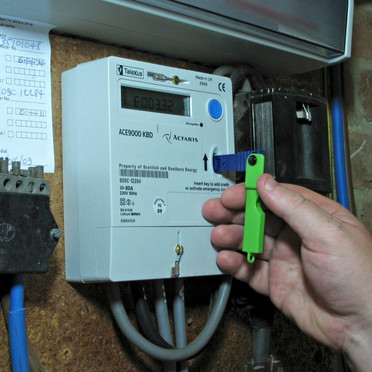Forced pre-payment energy meter installations to resume

Energy regulator Ofgem has today granted permission for companies to resume the forced installation of prepayment meters (PPMs) to the homes of customers almost a year after the practice was suspended.
Scottish Power, EDF and Octopus can now install prepayment meters with a warrant, or a smart meter switched to prepayment meter mode, for debt owed to them without permission from the customer.
The energy suppliers have provided evidence and assurances that they have met the regulator’s conditions to restart involuntary installations as a matter of last resort. The conditions include conducting internal audits to identify wrongfully installed PPMs and committing to reinstating non-prepayment methods and offering compensation. The suppliers must also provide regular monitoring data to Ofgem, so that concerning trends on involuntary PPM practices can be identified early.
The regulator also announced that if suppliers install a PPM in a property occupied by someone in the ‘do not install’ category set out in Ofgem’s Supplier Licence Conditions, and have not followed the rules in full set out by the regulator to make sure a prepayment meter is appropriate, they are expected to reinstate a credit meter within 24 hours and compensate their customers appropriately.
Ofgem said it has reminded supplier CEOs that the rules must be followed to the letter to avoid a re-run of some of the practices seen last year where vulnerable customers in energy debt were being moved onto PPMs without their consent.
Tim Jarvis, director general for markets at Ofgem, said: “Protecting consumers is our number one priority. We’ve made clear that suppliers must exhaust all other options before considering forced installation of a prepayment meter, and consumers can help themselves by reaching out to their supplier as soon as possible if they think they won’t be able to pay their bill, so payment options can be discussed. Our rules on when, and how, a prepayment meter can be installed are clear and we won’t hesitate to take action if suppliers act irresponsibly.
“While nobody wants to see the practices uncovered last year repeated, we also know that allowing households to build up unsustainable amounts of debt isn’t the right thing to do either. Many households value the control that these pay as you go meters offer over bills and how they can help with budgeting, and suppliers must also be able to recover debt to make sure those costs don’t end up on everyone else’s bills.
“We will continue to work closely with consumer groups and suppliers to make sure households understand their rights when it comes to prepayment meters, and will regularly review our rules to make sure they are working to protect the most vulnerable. I’d also strongly encourage consumers to make sure their personal details and circumstances are up to date with their supplier, so they can be taken into consideration if or when payment problems arise.”
Citizens Advice Scotland (CAS) said it is “deeply” concerned about the resumption of forced PPM installations.
The charity’s data reveals that demand for advice on fuel debt from the CAB network rose by 34 per cent from 2021/22 to 2022/23. Meanwhile, the average energy debt for individuals seeking complex debt advice across the network is £2,307 – up nearly £500 compared to the same time last year.
Analysis from CAS also found that more than 360,000 people in Scotland are worried about their debt to energy suppliers.
CAS social justice spokesperson Emma Jackson said: “Suppliers being given the green light for forced installations will add to significant worry people who are behind on their bills and in fuel debt already have.
“Data from across the Citizens Advice network sees demand for advice in fuel debt rising, which the average debt being £2,307. People find themselves in debt because costs are too high and incomes are too low. That’s why we urgently need to see a social tariff in the energy sector.
“For some PPM customers, energy is viewed as a luxury they can only afford in the first week or two of the month, and they then go without until the next payday. Our CAB advisers see firsthand the very real toll that going without energy has on people’s physical and mental health.
“We need a permanent ban on mandatory PPMs, whether that is physically installing them in people’s homes or remote switching a smart meter.
“The current code of practice doesn’t go nearly far enough and is riddled with loopholes.
“The threshold which suppliers agree to not install meters is too high – for example households with children and many pensioners remain at risk from forced installations.
“Guidance needs to be understandable and clear so advice and advocacy bodies can achieve the right outcomes for consumers and suppliers understand their requirements.
“We have provided information to Ofgem to outline a number of concerns where more clarity is needed – it also means we can’t properly flag compliance concerns if we don’t understand the requirements.”







